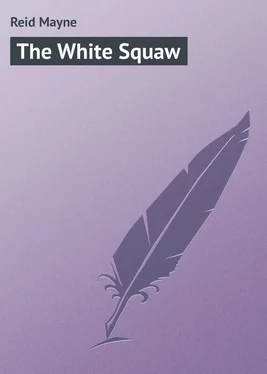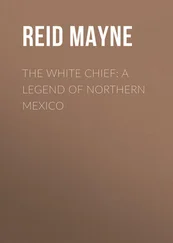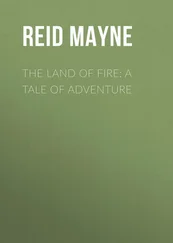Mayne Reid - The White Squaw
Здесь есть возможность читать онлайн «Mayne Reid - The White Squaw» — ознакомительный отрывок электронной книги совершенно бесплатно, а после прочтения отрывка купить полную версию. В некоторых случаях можно слушать аудио, скачать через торрент в формате fb2 и присутствует краткое содержание. Жанр: foreign_prose, на английском языке. Описание произведения, (предисловие) а так же отзывы посетителей доступны на портале библиотеки ЛибКат.
- Название:The White Squaw
- Автор:
- Жанр:
- Год:неизвестен
- ISBN:нет данных
- Рейтинг книги:3 / 5. Голосов: 1
-
Избранное:Добавить в избранное
- Отзывы:
-
Ваша оценка:
- 60
- 1
- 2
- 3
- 4
- 5
The White Squaw: краткое содержание, описание и аннотация
Предлагаем к чтению аннотацию, описание, краткое содержание или предисловие (зависит от того, что написал сам автор книги «The White Squaw»). Если вы не нашли необходимую информацию о книге — напишите в комментариях, мы постараемся отыскать её.
The White Squaw — читать онлайн ознакомительный отрывок
Ниже представлен текст книги, разбитый по страницам. Система сохранения места последней прочитанной страницы, позволяет с удобством читать онлайн бесплатно книгу «The White Squaw», без необходимости каждый раз заново искать на чём Вы остановились. Поставьте закладку, и сможете в любой момент перейти на страницу, на которой закончили чтение.
Интервал:
Закладка:
Be this as it may, one thing is certain, he became before long a most exemplary member of the society he had selected for imitation. No one drove a closer bargain, saw an advantage (to himself), or could lay surer plans for securing it, than Elias Rody.
He learned, also, to control, and in every way wield influence over those around him. Power became his dream. He was ambitious of governing men.
Strange to say, this feeling was almost fatal to his prospects. We say strange, because ambition generally carves its own road, and moulds its own fortune.
Rody, however, had commenced an active career too late to arrive at much importance in the political world – that grand arena for attaining distinction.
He therefore cast about him for another field of ambitious strife, and speedily found it.
At this time throughout the state of Georgia were many planters, who, without capital to purchase additional property, found themselves daily growing poorer as their land became worn out with exhausting crops.
These men were naturally enough the grumblers and discontented spirits of the community.
Another class were those with little save a restless disposition, ever ready for any venture that may arise.
Rody, shrewd and plausible, saw in these men the very instruments for a purpose he had long thought of, and had well matured.
“If I cannot attain the object of my wishes here,” said he, to himself, “perhaps I may be successful elsewhere, if I can only persuade others to join me. These are men ready to my hand; I will take them with me, they shall be my followers; and whilst contributing their means to my end, they will look upon me as a benefactor.”
Rody, it will be seen, was a thorough egotist.
This idea becoming fixed in his mind, the rest was easy. He spoke to them of their present condition; drew a brilliant picture of what might be achieved in a new land; painted with masterly eloquence the increase of wealth and happiness his plan presented, and finely gathered around him a large number of families, with whom he started from Georgia, and settled in that section of Florida we have described.
The reason for Rody’s selection of this spot was another proof of his profound selfishness.
In his reckless, generous days, he had, on the occasion of a visit to Columbus, been the means of saving from insult and outrage a Seminole chief, who had visited the capital upon some business connected with the State Government.
This act of generosity had been impulsive; but, to the Indian, it assumed the proportion of a life-long debt.
In the fulness of his gratitude, the chief caused papers and titles to be drawn up in Rody’s favour, giving a grant of a portion of his own property lying on the shores of Tampa Bay.
The Indian chief was named Oluski.
The grant of land was the settlement we have spoken of.
Rody, at the time, made light of Oluski’s gratitude, and thrust the title into his desk without bestowing a second thought on the matter.
Now, in his days of worldly wisdom, these papers with the Seminole’s emblematic signature, were brought to light with a very different appreciation.
He saw that they represented value.
Elias Rody accordingly determined to make use of them.
It ended in his carrying a colony southward, and settling upon Tampa Bay.
The scheme originated in selfishness turned out a success.
The lands were valuable, the climate salubrious, and the colony thrived.
A bad man may sometimes do a good thing without intending it.
Rody received even more credit and renown than he had expected; and, being a shrewd man, he achieved a part of his ambition.
He was looked up to as the most important personage in the community.
Although some of the settlers did not approve of all his measures, still, their opposition was rather negative than positive, and had, as yet, found vent only in remonstrances or grumbling.
None had dared to question his prerogative, although he often rode a high horse, and uttered his diction in a tone offensively arrogant.
What more, then, did Elias Rody want?
A covetous man always wants more. Oluski’s gift was a noble one. It covered a large area of fertile land, with water privileges, and a harbour for trade. It was the choicest portion of his possessions. The chief, in bestowing it, gave as a generous man gives to a friend. He gave the best he had.
Unfortunately the best he had did not embrace the hill; and, therefore, Rody was unsatisfied.
More than once during the progress of the settlement, he had cast a wishful eye upon the spot, as the choicest site in the whole district for a dwelling.
As his means expanded so had his tastes, and a grand dwelling became the great desire of his life.
It must, perforce, be built upon the hill.
To every offer made to Oluski for a cession of this spot, the chief had firmly and steadfastly given a refusal. He, too, had his ambition; which, although not so selfish as the white man’s, was not a whit less cherished.
For nine months in the year Oluski and his tribe dwelt in a distant Indian town, and only visited the waters of Tampa Bay for the remaining three, and then only for the purposes of pleasure. The wigwams of himself and people were but temporarily erected upon the hill. For all this they had an attachment for the spot; in short, they loved it.
This was what Elias Rody stigmatised as a mere fancy.
There was another reason held in similar estimation by Elias. In the rear of their annual encampment was an Indian cemetery. The bones of Oluski’s ancestors reposed therein. Was it strange the spot should be dear to him?
So dear was it, in fact, that to every proposal made by Rody for the purchase of the hill, Oluski only shook his head, and answered “No.”
Chapter Four.
Cris Carrol
Nelatu recovered from his wounds.
Warren had conducted him to a hut, the temporary residence of a man of the name of Cris Carrol.
This individual was a thorough specimen of a backwood’s hunter.
He was rough in manner, but in disposition gentle as a child.
He detested the formalities and restrictions of civilisation.
Even a new settlement had an oppressive air to him, which he could not endure.
It was only the necessity of disposing of his peltries and laying in a stock of ammunition that brought him into any spot where his fellow creatures were to be found.
To Cris Carrol the sombre forest, the lonely savannah, or the trackless swamp, were the congenial homes, and bitterly he adjured the compulsory sojourn of a few days every year amongst those to whom society is a pleasure.
It was always a joyful day to him when he could shoulder his rifle, sling his game bag over his shoulder, and start anew upon his lonely explorations.
When Warren brought the wounded Indian to Carrol’s rude hut, the old backwoodsman accepted the responsibility, and set himself to the task of healing his wounds with alacrity.
Nelatu was known to him, and he was always disposed to be a friend to the red man.
“No, of course not,” said he to Warren, in answer to his explanation; “I don’t see as how you could take the red-skin up to the governor’s house. Old dad wouldn’t say no, but he’d look mighty like wishin’ to. No, Warren, lad, you’ve done the right thing this time, and no mistake, and that there’s sayin’ more nor I would always say. Leave the boy to me. Bless you, he’ll be all right in a day or two, thanks to a good constitution, along of living like a nat’ral being, and not like one of them city fellows as must try and make ’emselves unhealthy by sleepin’ in beds, and keeping warm by sittin’ aside of stoves, as if dried leaves and dried sticks warn’t enough for ’em.”
Читать дальшеИнтервал:
Закладка:
Похожие книги на «The White Squaw»
Представляем Вашему вниманию похожие книги на «The White Squaw» списком для выбора. Мы отобрали схожую по названию и смыслу литературу в надежде предоставить читателям больше вариантов отыскать новые, интересные, ещё непрочитанные произведения.
Обсуждение, отзывы о книге «The White Squaw» и просто собственные мнения читателей. Оставьте ваши комментарии, напишите, что Вы думаете о произведении, его смысле или главных героях. Укажите что конкретно понравилось, а что нет, и почему Вы так считаете.












